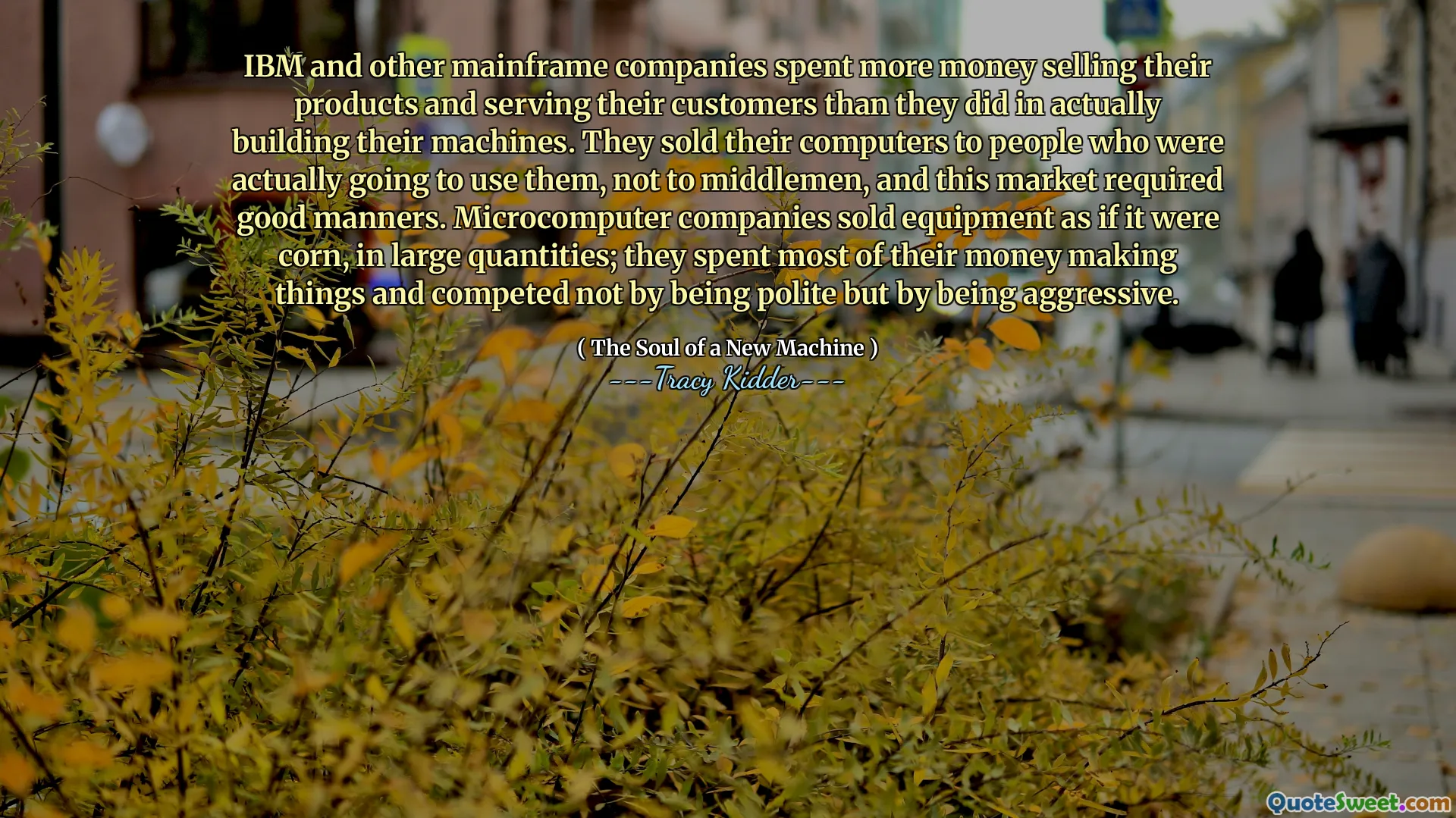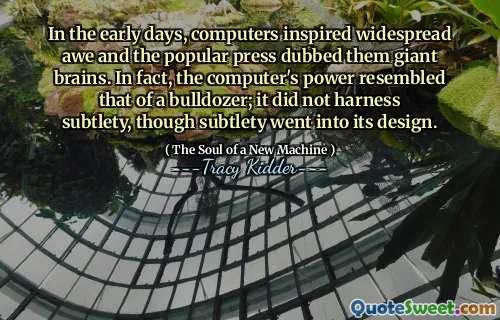
IBM and other mainframe companies spent more money selling their products and serving their customers than they did in actually building their machines. They sold their computers to people who were actually going to use them, not to middlemen, and this market required good manners. Microcomputer companies sold equipment as if it were corn, in large quantities; they spent most of their money making things and competed not by being polite but by being aggressive.
In his book "The Soul of a New Machine," Tracy Kidder contrasts the marketing strategies of mainframe companies like IBM with those of microcomputer firms. Mainframe companies invested significantly in customer relations and service, prioritizing the needs of the end-users over middlemen. This approach emphasized the importance of good manners and respectful engagement, reflecting a deeper understanding of their customer base.
In contrast, microcomputer companies adopted a more aggressive stance, treating their equipment like commodity corn and focusing primarily on production efficiency. Their competition was rooted in volume sales rather than customer service, which shaped a different market dynamic that prioritized aggressive marketing over the courteous approach favored by mainframe companies.











